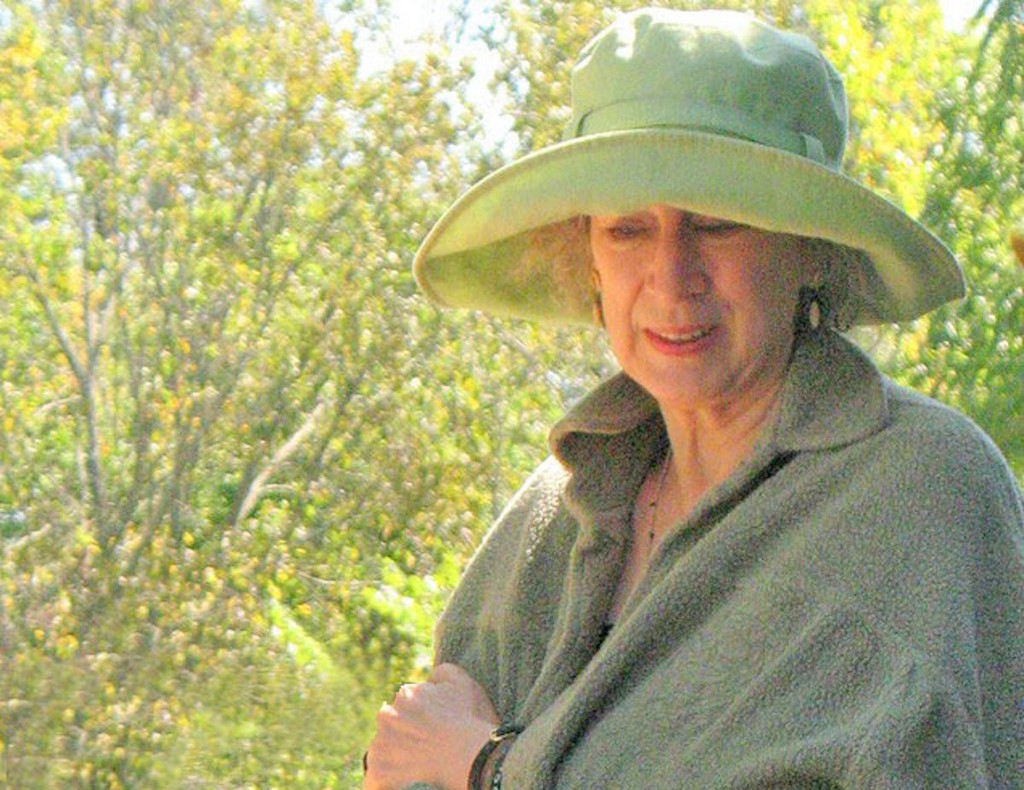Books & Culture
Margaret Atwood’s Books Taught Me to Listen to Women—Now She Needs to Learn the Same Thing
Listening skills are even more essential for real life than they are for fiction

Writers are often great observers, but we aren’t always good listeners. Our stories share knowledge and create empathy in the reader, but the dark side of our work is the ego it sometimes takes to sustain it. Writing, especially something as long and thankless as an entire book, requires a belief in the importance of one’s own voice, even in the face of skeptics and critics. We rely on our words to crawl into hearts and change minds. In fact, though, the most radical thing those with powerful voices can do in times of conflict is listen.
One author who taught me to listen to women’s stories in particular was Margaret Atwood, perhaps the best-known writer in Canadian literature. Her books taught me that women’s stories were just as important as men’s. Her protagonists survived bullying in Cat’s Eye, monstrous political oppression in the Handmaid’s Tale, and a kind of armageddon in the Maddaddam trilogy. Yet in the past few years, Atwood has shown that her ability to tell compelling stories about fictional women far outstrips her ability to listen to real ones.
Atwood has shown that her ability to tell compelling stories about fictional women far outstrips her ability to listen to real ones.
My split with Atwood began with her support of Steven Galloway, the former head of the creative writing department at the University of British Columbia where I earned my MFA. In 2015, Galloway had been suspended after a number of students filed formal complaints that included sexual harassment and inappropriate sexual behavior. In newspapers and online, a number of famous writers spoke out on Galloway’s behalf without ever bothering to ask whether the complaints might be true. Their outcry culminated in #UBCAccountable, an open letter calling for due process for Galloway despite that he had a union and labor laws to protect him and no criminal charges have ever been filed. Atwood signed that letter and wrote about why in the Walrus, a national magazine. Then she used her considerable Twitter presence to bite back at anyone who disagreed with her.
In a recent op-ed in the Globe and Mail, Atwood once again called out the women who criticized her, positioning herself as a rational being standing up for justice against a backlash of orthodox feminist zealots. She went on to take Galloway’s innocence as a given and argue that his firing was an injustice on the same level as that against Steven Truscott, a man who was arrested at 14 years old and spent ten years in prison for a murder he didn’t commit. Her version of the Galloway narrative has been widely debunked, but that didn’t temper her certainty or the strength of her voice. She ended by calling for unity, which is admirable, but asked that readers unify under her version of the narrative in support of her reputation as a feminist rather than each other. What she didn’t seem to realize was that the criticism was never about her right to express her opinion. It was about the moral responsibility we all have to choose when to speak and when to listen.
Criticism of Atwood was never about her right to express her opinion. It was about the moral responsibility we all have to choose when to speak and when to listen.
It’s hard to explain how disappointing all this has been. Before it started, I often defended Atwood against criticism about her prickly public persona. Being a woman writer in Canadian literature, I argued, meant developing a hard shell. I remember coming across her poem “You Fit Into Me” in a CanLit textbook in undergrad and laughing so hard I cried. “You fit into me/like a hook into an eye,” she wrote, “a fish hook/an open eye.” I loved how unsentimental the image was, how in a few lines it demolished love poetry as a kind of violence.
Though she came from a background of far more privilege than I did, Atwood’s uncompromising refusal to soften to the expectations of a woman writer was inspiring. From her and those who came slightly before — Alice Munro, Margaret Laurence — I learned that women of my mother’s and grandmother’s generations lived under a never-ending campaign aimed at breaking down their self-trust. They often worked in isolation and in competition with each other, forced to advocate for themselves against a system that would rather they disappear. Having Atwood’s texts gave me a foundation of strength. Foolishly, I thought she would appreciate seeing the same uncompromising commitment to change in the generations that followed her. I thought she would be willing to listen to reason.
Atwood is not the only Canadian author to ignore the importance of listening. Over the past few years, some of our most venerated authors have produced a great number of words about Galloway’s firing, writing as if those who had filed official complaints against him were characters in a novel. They used their considerable rhetorical skills and personal fame in support of a man accused of hurting his students without considering the damage he might have done to those students. They rode roughshod over one woman in particular, the main complainant in the case, who doesn’t even get the dignity of a name or an opportunity to defend herself publicly because of labor law that protects the accused.
Some signers of the letter have revised their statements, said they’re interested in justice for all, yet the fact remains that not one of those authors thought to contact the complainants and ask what they might need for support before signing. As they wrote press releases and personal statements demanding transparency and justice, never once did they think to contact the main complainant, through her lawyer or through other complainants who’ve named themselves in newspaper articles. The signers said they felt bullied, but it never occurred to them that they might be bullies, too, ones with the ability to control the narrative on a much grander scale than their detractors. Even the recent CanLit Accountable open letter from former Concordia University graduate Mike Spry, which highlights his complicity in a culture of toxic masculinity and abuse in their creative writing program, was written and posted without input from the victims. Without consultation, even well-meaning advocacy feels a lot like aggression.
Without consultation, even well-meaning advocacy feels a lot like aggression.
It’s not that I’m angry with Atwood and those other authors I once admired. More than anything, I’m sad for them. I see them as people who, out of fear or carelessness, have hardened themselves against the voices of those who have less power. They have robbed themselves of a great deal of wonder by drawing a line between who is worth listening to and who isn’t. In her book Pilgrim at Tinker Creek, Annie Dillard writes about what happens when we put aside our assumptions about what we deem normal and construct an “artificial obvious” that allows us to see new and extraordinary things. Dillard watches the air, the grass, the trees with patience and openness, and the world rewards her with incredible beauty. I believe this principle can be applied to listening, too.
Really listening requires full body presence. It requires you to soften and let go of the fear, the urge to argue, and the instinct to control the narrative. It takes a comfort with silence and a willingness to accept that your turn to talk may never come, that what’s happening might not be about you at all. This doesn’t mean internalizing every call-out on social media, but rather acknowledging how your voice carries and reaching out to those who have less power with compassion, respect, and openness. It requires you see them first as individual human beings with names, lives, and experiences you might not have imagined. We’ve assumed for too long that the onus for reaching out is on the less powerful. We must work to upend that imbalance and make space for women of color, Indigenous women, trans women, and others who have been left out of feminism in the past.
Over the past few years, I’ve been working on tempering my voice to make more space for listening. I’ve seen the beauty this openness reveals first-hand in the students I’ve worked with who come from different linguistic backgrounds and struggle with academic English. A few have told me about teachers who have dismissed them out of hand, assumed they weren’t worth listening to, or spoken over them. I’ve never met a student who didn’t have something worth saying inside them. Some just take more time than others.
Indeed, we live in a time when there are endless opportunities to learn about the stories of others in their own words. Just this weekend at the first anniversary of the Women’s March, I stood with a thousand other women and allies on a windy shelf overlooking Vancouver’s spectacular North Shore Mountains and heard Musqueam activist Rhiannon Bennett speak about the way the issues addressed by the #metoo movement disproportionately affect Indigenous women. I heard Hailey Heartless argue with wit and clarity for the life-and-death necessity of including sex workers like herself in feminist discussions. I wiped away tears as Noor Fadel read her poem “I Forgive You,” addressed to the man who attacked her on a crowded SkyTrain for wearing a hijab. As woman after woman told stories of violence, familiar and unfamiliar, I felt awed and grateful, even when the things they said called attention to the many privileges I hold as a white cis woman who was born in Canada. Some have condemned this multiplicity of voices as a descent into disorder and chaos. I see it as an opportunity to move toward an equitable society.
The greatest block to really listening is not the noise of the world, but that voice inside that protects us, centers us, rattles with outrage or disbelief. I still respect the ways Atwood made space for women’s narratives in literature against tremendous pressure, but I can’t help but feel like all those years of protecting herself are what’s holding her back from hearing the voices of the women around her now, making it difficult for her to see the beauty in the moment. If we’re going to find a way forward, we’re all going to have to learn to listen.








